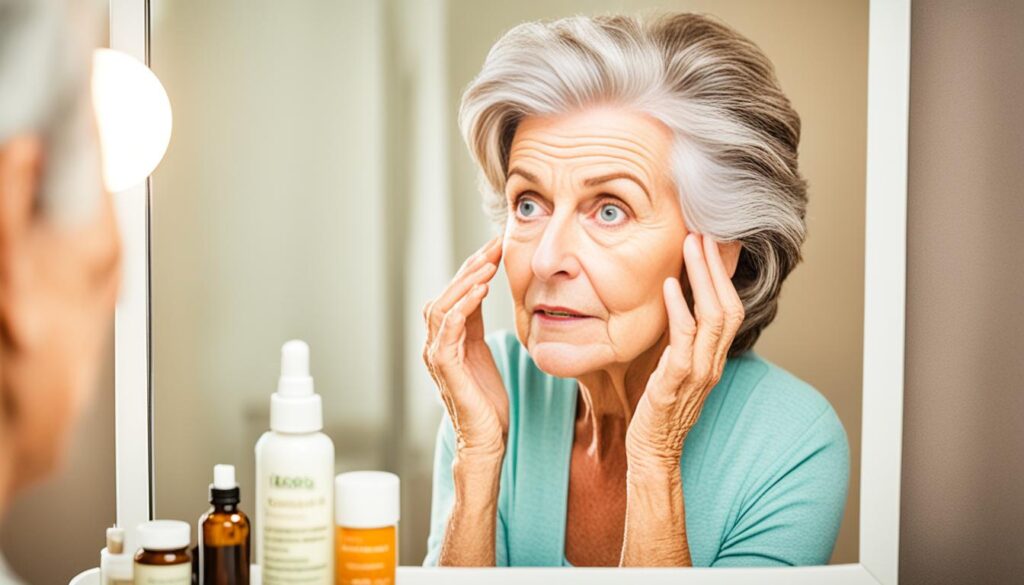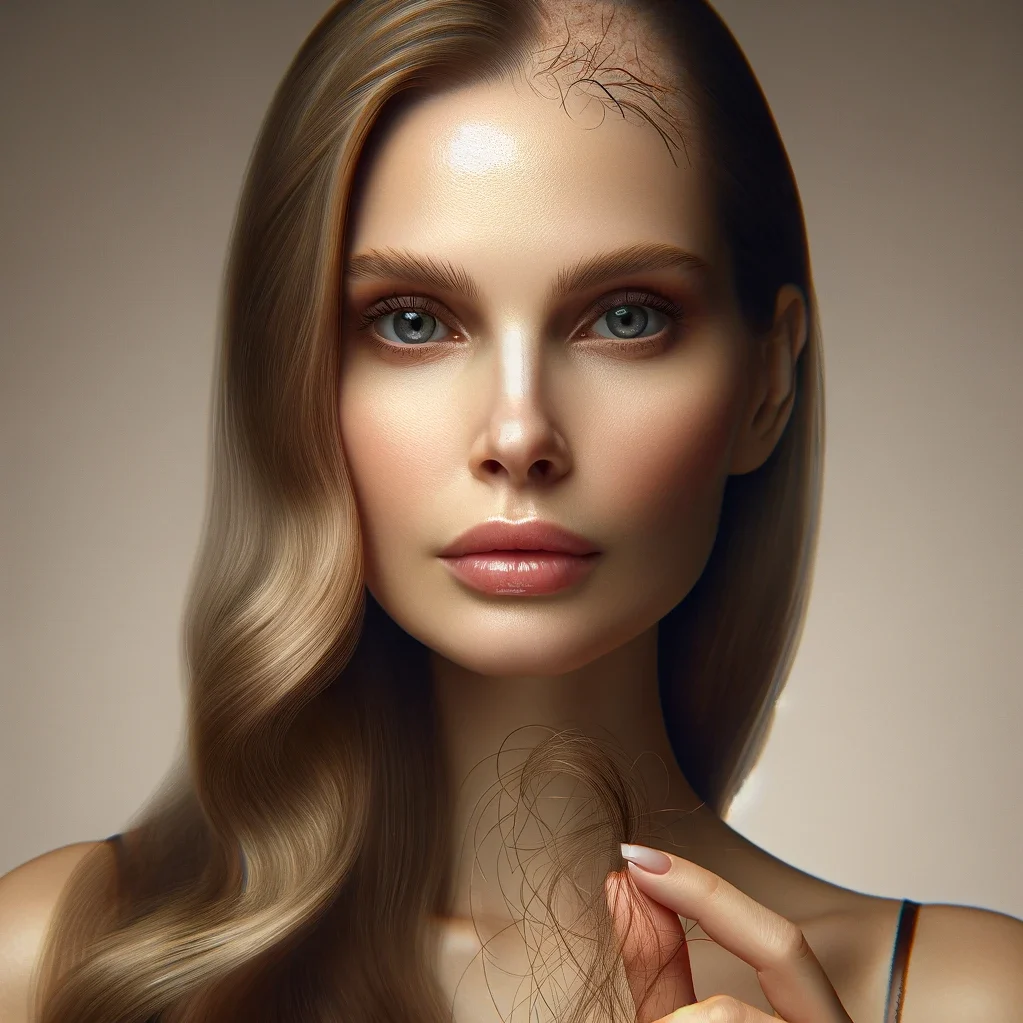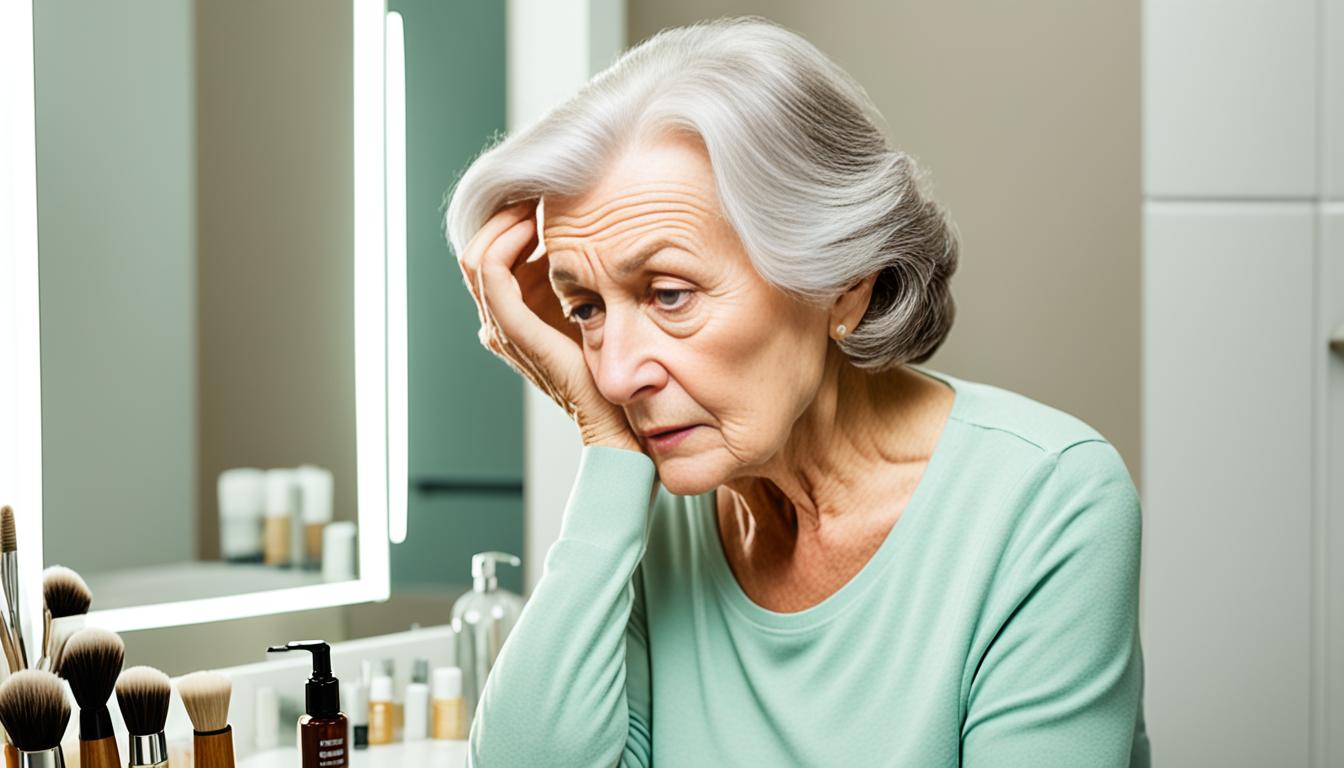Hair loss in women over 60 is a common concern that can have a significant impact on their self-esteem and quality of life. As women age, they may experience various changes in their body, including changes in their hair. It’s essential for women in this age group to understand the causes of hair loss and the available treatment options to address this issue effectively.
Key Takeaways:
- Hair loss is a common occurrence in women over 60 and can be attributed to factors such as heredity, hormonal changes, medical conditions, or the natural aging process.
- Common causes of hair loss in older women include hereditary factors, hormonal changes like menopause, medical conditions, and certain medications or treatments.
- Treatment and management options for hair loss in women over 60 can vary depending on the underlying cause and can range from alternative styling methods to medical interventions.
- Maintaining a healthy lifestyle, managing stress, and using gentle hair care practices can help prevent further hair loss and promote regrowth.
- Consulting with a healthcare professional is crucial to receive personalized advice and guidance on the best approach for addressing hair loss in women over 60.
Common Causes of Hair Loss in Older Women
Hair loss is a common concern among women over 60, and it can have a significant impact on their self-esteem and overall well-being. Understanding the causes of hair loss is crucial in order to effectively address and manage the condition. Here are some common factors that contribute to hair loss in older women:
- Hereditary Factors: Genetics play a significant role in determining a person’s susceptibility to hair loss. If there is a family history of thinning hair or baldness, it increases the likelihood of experiencing hair loss in older age.
- Hormonal Changes: Hormonal fluctuations, particularly those associated with menopause, can cause hair thinning and loss. As estrogen levels decrease, hair follicles become more sensitive to male hormones like testosterone, leading to miniaturization of the hair follicles and eventual hair loss.
- Medical Conditions: Certain medical conditions, such as alopecia areata (an autoimmune disease that causes patchy hair loss), scalp infections, and thyroid disorders, can contribute to hair loss in older women.
- Medications and Treatments: Some medications, such as those used in chemotherapy or radiation therapy, can cause temporary or permanent hair loss. Additionally, treatments like radiation therapy can damage hair follicles and inhibit hair growth.
“Hair loss in older women can be attributed to various factors, including genetics, hormonal changes, medical conditions, and certain treatments. Understanding these causes is the first step in finding suitable solutions for hair loss.”
If you’re experiencing hair loss, it’s important to consult with a healthcare professional who specializes in hair and scalp health. They can evaluate your specific situation and recommend appropriate treatments or remedies tailored to your needs. Depending on the underlying cause, treatment options may include:
- Topical treatments: These may include minoxidil, a medication that stimulates hair growth, or corticosteroids to reduce inflammation.
- Laser therapy: Low-level laser therapy (LLLT) devices, such as laser combs or caps, can help stimulate hair follicles and promote regrowth.
- Hair transplantation: In cases of more advanced hair loss, hair transplantation procedures can be considered. This involves transplanting hair follicles from a donor area to areas with thinning or no hair.
It’s worth noting that not all hair loss requires medical intervention. Some women may opt for alternative solutions, such as wearing wigs, using hairpieces, or exploring different hairstyles that can help conceal thinning hair. Additionally, maintaining a healthy lifestyle, managing stress levels, and adopting gentle hair care practices can contribute to overall hair health and potentially slow down the progression of hair loss.
Remember, each person’s experience with hair loss is unique, so it’s important to find a solution that works best for you. Consulting with a healthcare professional can provide you with the guidance and support needed to navigate through the various treatment options available and find one that suits your individual needs.
Treatment and Management of Hair Loss in Women Over 60
Treatment and management options for hair loss in women over 60 can vary depending on the underlying cause. Here are some strategies that can help prevent hair loss, promote regrowth, and cope with the challenges of hair loss in older women.
- Embracing Hair Loss: Some women may choose to embrace their hair loss and find alternative ways to style or cover their thinning hair. Wearing wigs or scarves can be stylish options to enhance self-confidence and maintain a positive self-image.
- Medical Interventions: Other women may opt for medical interventions to address their hair loss. Topical treatments containing minoxidil have been shown to promote hair regrowth in some women. Laser therapy is another option that can stimulate hair follicles and promote thicker, healthier hair. In more severe cases, hair transplantation may be considered as a more permanent solution.
- Maintaining a Healthy Lifestyle: Taking care of your overall health is crucial in preventing further hair loss. A balanced diet rich in vitamins and minerals, regular exercise, and adequate sleep can contribute to healthy hair regrowth.
- Stress Management: Chronic stress can contribute to hair loss, so finding effective stress-management techniques is important. Engaging in activities such as meditation, yoga, or hobbies can help reduce stress levels and promote hair regrowth.
- Gentle Hair Care Practices: Avoiding harsh styling products, minimizing heat styling tools, and using gentle hair care practices can help prevent additional damage and breakage. Opting for natural and nourishing hair products is recommended.
Remember, it’s essential for women experiencing hair loss to consult with a healthcare professional to determine the underlying cause and explore available treatment options. Each individual’s situation is unique, and personalized advice can provide the best approach to prevent hair loss, promote regrowth, and cope with the emotional challenges that may arise.
“Hair loss in women over 60 can be a challenging experience, but there are various treatment and management options available to help overcome these challenges. By embracing hair loss, considering medical interventions, maintaining a healthy lifestyle, managing stress, and adopting gentle hair care practices, women can take control of their hair loss journey and regain their confidence and self-esteem.”
Regrowth Solutions for Women with Hair Loss
Regrowing hair can be a priority for many women experiencing hair loss. While the effectiveness of regrowth solutions may vary depending on individual factors, certain treatments can help stimulate hair follicles and promote regrowth.
Table:
| Treatment | How It Works |
|---|---|
| Topical Minoxidil | Applied directly to the scalp, minoxidil increases blood flow to hair follicles, promoting hair growth. It is available in different strengths and can be easily incorporated into a daily hair care routine. |
| Laser Therapy | Low-level laser devices emit red light that stimulates hair follicles, enhancing cell metabolism and promoting hair growth. Regular use can lead to thicker, healthier hair. |
| Hair Transplantation | In hair transplantation, healthy hair follicles are harvested from one area of the scalp and transplanted to areas with thinning or no hair. It is a surgical procedure performed by a qualified professional. |

Conclusion
Hair loss in women over 60 is a common concern that can significantly impact self-esteem and confidence. However, it’s important to understand that hair loss is a natural part of the aging process and can be influenced by various factors.
By understanding the causes of hair loss, women over 60 can make informed decisions about managing their hair loss. Consulting with a healthcare professional is crucial to receive personalized advice and guidance tailored to each individual’s needs.
Available treatment options for hair loss in older women can range from alternative styling methods to medical interventions. Some women may choose to embrace their hair loss and find stylish ways to cover thinning hair, while others may opt for topical treatments, laser therapy, or hair transplantation.
Ultimately, the key is to maintain a healthy lifestyle, manage stress, and use gentle hair care practices to prevent further hair loss and promote regrowth. By taking proactive steps and seeking professional advice, women over 60 can continue to feel confident and embrace their natural beauty, regardless of their hair loss journey.
FAQ
What are the common causes of hair loss in older women?
Hair loss in older women can be caused by factors such as heredity, hormonal changes, medical conditions, or the natural aging process.
What treatments are available for hair loss in women over 60?
Treatment options for hair loss in women over 60 can vary depending on the underlying cause. Some options include topical treatments, laser therapy, or hair transplantation.
How can I prevent further hair loss and promote regrowth?
Maintaining a healthy lifestyle, managing stress, and using gentle hair care practices can help prevent further hair loss and promote regrowth. Consulting with a healthcare professional can provide personalized advice and guidance.
Is hair loss in women over 60 a natural part of the aging process?
Yes, hair loss in women over 60 is a natural part of the aging process and can also be influenced by various factors. Understanding the causes and available treatment options can help manage hair loss and maintain confidence and self-esteem.

